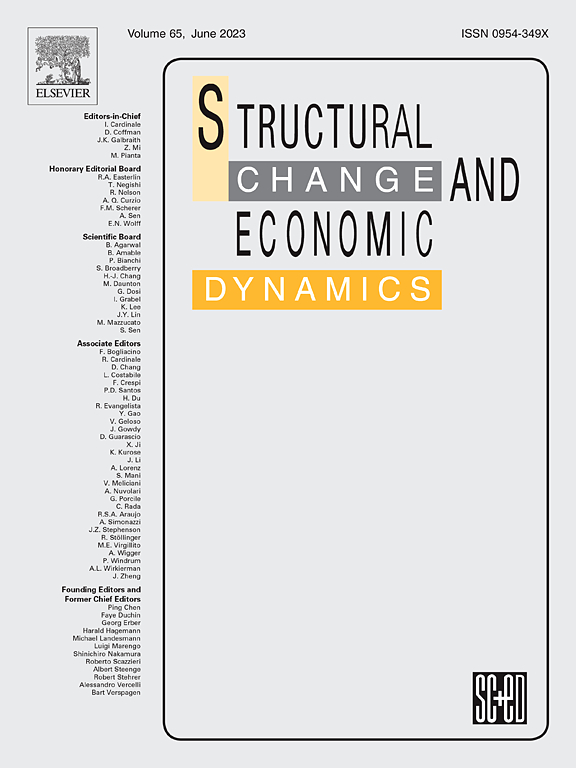Energy poverty and the green energy transition's impact upon income inequality in Latin America
IF 5
2区 经济学
Q1 ECONOMICS
引用次数: 0
Abstract
In this study, we examine the relationships arising from the transition process to green economies and energy poverty in relation to income inequality across 22 Latin American countries during the period from 2000 to 2021. Our estimations are conducted using various estimators for energy poverty and the transition to green economies, employing feasible generalized least squares (FGLS) and panel corrected standard errors (PCSE) to ensure robustness. The results reveal a significant effect of both sets of variables on income inequality. Specifically, energy poverty contributes to higher levels of income inequality, while the ecological transition has the potential to address income inequality issues, provided an effective distribution of renewable energy resources among society is ensured. Failure to achieve equitable distribution of renewable energy resources may hinder the attainment of more egalitarian societies. To address this, a comprehensive set of policies is required to ensure equal access to renewable energy sources for the entire population, along with effective long-term measures that contribute to the equitable distribution of energy resources.
在本研究中,我们研究了2000年至2021年期间22个拉丁美洲国家向绿色经济转型过程中产生的能源贫困与收入不平等的关系。我们使用能源贫困和向绿色经济转型的各种估计器进行估计,采用可行广义最小二乘(FGLS)和面板修正标准误差(PCSE)来确保稳健性。结果显示,这两组变量对收入不平等都有显著影响。具体而言,能源贫困加剧了收入不平等,而生态转型有可能解决收入不平等问题,前提是确保可再生能源在社会中的有效分配。不能实现可再生能源的公平分配可能会阻碍实现更平等的社会。为了解决这一问题,需要制定一套全面的政策,以确保所有人口都能平等地获得可再生能源,同时还需要采取有效的长期措施,促进能源的公平分配。
本文章由计算机程序翻译,如有差异,请以英文原文为准。
求助全文
约1分钟内获得全文
求助全文
来源期刊

Structural Change and Economic Dynamics
ECONOMICS-
CiteScore
9.60
自引率
4.90%
发文量
159
期刊介绍:
Structural Change and Economic Dynamics publishes articles about theoretical, applied and methodological aspects of structural change in economic systems. The journal publishes work analysing dynamics and structural breaks in economic, technological, behavioural and institutional patterns.
 求助内容:
求助内容: 应助结果提醒方式:
应助结果提醒方式:


